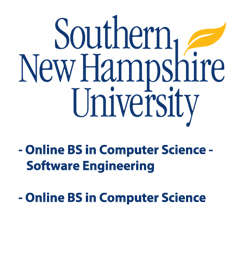
Pursuing Software Testing CertificationSoftware testers and quality assurance professionals assure that software is high quality and functions properly. Software testing certifications help ensure that software testing professionals are high quality, too -- the certification exams test the testers. 95% of the managers surveyed indicated that testers were more confident after passing the certification exam. - ASTQB Survey
As a software testing professional, you may pursue certification for several reasons. Some companies ask for it. In fact, many give the tests on site. In these instances, they have a particular company that they work with, and some logistics have been taken care of. Assuming you know the material, you might not need to do much more than show up. You may also pursue certification on your own. You may be looking for pay raises or career mobility. Another reason to pursue certification is confidence -- confidence when applying for jobs and also when performing on the job. The American Software Testing Qualifications Board (ASTQB) did a survey of test managers who had certified personnel; 95% of the managers surveyed indicated that testers were more confident after passing the certification exam. Types of Software Testing CertificationYou should be aware that there are two different types of certification. Some involve attending workshops or completing online modules and then taking tests. Others are a certification of the education or experience you already have -- you are not required to take additional classes. If you have formal education or significant work experience, you may choose to pursue these. Software Testing Certifying AgenciesThe following is a look at two well-known certifying agencies that are not vendor-specific. ISQTB/ASQTB Certifications The International Software Testing Qualifications Board/ American Software Testing Qualifications Board offer highly respected credentials at several levels. The ISTQB Certified Tester, Foundation Level (CTFL) does not have prerequisites or experience requirements. You take a test that consists of 40 multiple choice questions. Some companies offer the exam onsite; it is also possible to take it at a testing center or as a scheduled public exam. You can find a sample test online. When you're ready to register for the exam, you'll pay a $250 fee. Later you can become an ISTQB Certified Tester, Advanced Level (CTAL). You must hold foundation level certification before you can pursue the advanced credential. You will also need to have three years of full-time experience in testing, quality assurance, development, or a related field. This is your opportunity to demonstrate your expertise in a specialty area. There are three types of certification:
The advanced level exam is also multiple choice, but consists of 65 questions, some of which are more complex and are worth two points. There are also expert level certifications. To qualify for these, you will need five years of testing experience, with at least two years in the particular area you want to qualify in. Again, there is an examination process. As a certified tester, you can search for job opportunities directly on the ASTQB site. QAI Global Institute Certifications You can also become a Certified Software Tester (CSTE) through the QAI Global Institute. CSTE certification requires some experience – how much experience depends on your level of education. Without a degree, you will need six years in information services. If you have a degree (up to bachelor's level), add the years in your degree to your years of experience and ask yourself if it adds up to six. You also need to be currently working in the field or have worked in the field at some point in the past 18 months. The test can be taken online at a Prometric Test Center. The QAI Global Institute also offers software quality analyst and quality assurance certifications. |

